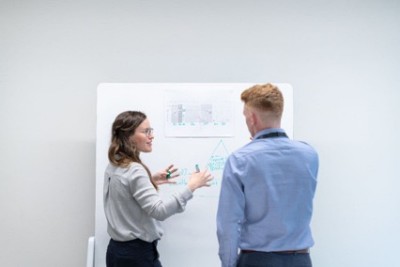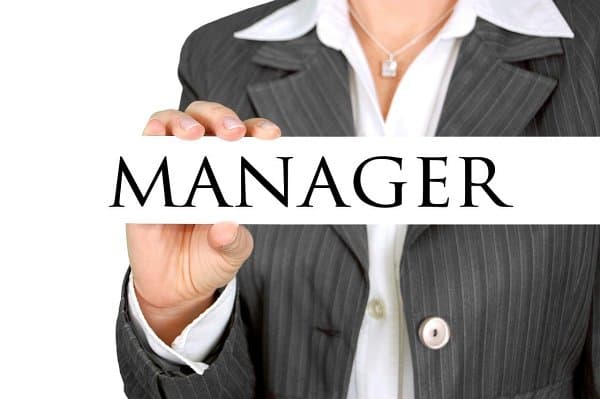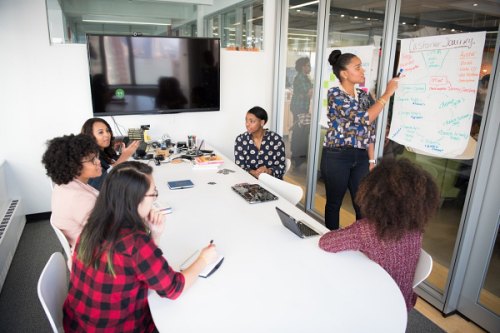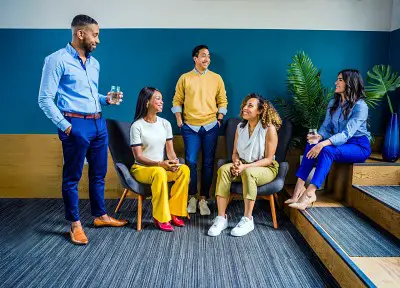5 Training Options to develop Social Skills
Facing daily experiences, we get to know and interact with people with divergent personalities; some social experiences can succeed better than others according to how we apologize or not, perform a job task, and react to pressure.
in this article, we will find out how to develop social skills and see a few suggestions that we can use to train them.
A Brief introduction on Social Skills
Social skills are a set of diverse behaviors and strategies people use to act suitably in social and interpersonal contexts; these skills help solve social situations effectively and adequately to all those involved and the social context in which they find themselves.
Social skills allow us to:
- Express in a conscious manner our feelings, wishes, and opinions;
- Stand up for our rights, in an appropriate way to the situation in which we find ourselves and in help respect the rights of others;
- Understand the importance of communication skills, which leads to a person who values more feedback.
As such, they help us improve our family, friends, professional connections, and even with strangers to get what we want in the simplest way. These behaviors are necessary to interact and relate to others in a manner adequate and mutually satisfactory.
How can we develop Social Skills?
In order to develop social skills, one needs to endeavor in learning more about people, the environment and culture they are in, as well as their own emotions and intricacies. Listen more actively, try hard to understand others, and find the best way to position oneself as a valuable person to be around, even if just for one particular skills, like active listening for example.
We all can have social skills; yes, we can see a toddler born hyperactive and against all odds (his parents are calm, and the environment doesn’t stimulate that). That happens because not only our social experience help us out with that but our essence and willpower.
Suppose we are born extroverted and would like to improve our social skills. In that case, we can also do that, and we can develop our social skills by somehow interacting with an activity that stimulates our cognitive, emotional, or social intelligence.
HIGHLY Recommended Article: 5 Ways to Practice Interpersonal Skills Explained
5 Options to develop Social Skills
1. Theater and Social Skills
Theatrical games stimulate interpersonal relationships by putting us in situations wholly different and unusual. The scenes and the processes involving a group allow us to experiment and develop our social skills.
A group of researchers from the University of Harvard developed The Theory of Multiple Intelligences, which stands by the logic that our brain has different developed areas, cognitive intelligence and mathematics, and playful and artistic activities.
And that is why performing art can be so crucial to human development.
The interaction between characters and text, or moments of creation and performance together, are part of this; everything makes possible the improvement of social relations, from the knowledge of oneself and the other.
The theater is an activity that involves all the senses: a) works the body posture, b) the breath, c) speech, d) develops the reading, and, mainly, e) is a tool for life professionals in any area of activity.
How can Theater serve as training for social skills?
Theater creates a safe space if we are, for example, afraid of public speaking, and we would like to give better speeches and even leave the nervousness aside when we met someone new.
Here we follow a script that needs to be memorized; however, its performance needs to be completely natural as a day-to-day social situation exposing the versatility and advantage of investing in a theater course, for example:
- Networking;
- Oratory capacity;
- Improvement of oral communication;
- Improvement in body language;
- Personal development because we get to know each other better;
- New social adaptability issues.
2. Adopting a Pet and Social Skills
There are all kinds of people, and a lot of times, situations can occur that we have to deal with a person who is under stress or emotionally out of control. If we work in people management, it is up to us to know how to manage this situation.
Dogs are often energy-filled animals, and unlike humans, they don’t have the cognitive ability to understand that it has to calm down unless we train, which requires patience.
How adopting a Pet can serve as training for social skills?
Adopting a pet would be a great way to improve our interpersonal relationships because the training process takes a lifetime, dogs.
For example, we need routine, and some have a bitter temperament than others, so it requires our patience and calm, which can help us when we’re interacting with impatient and rude people.
When it comes to pets or people, we are the ones who need to change the energy, the approach to a better outcome because it will have inevitably adapt to us. If not, we can breathe out a little bit and use the repertory we have from experience with pets to deal with social situations.
- With pets, we will find our way to turn out feelings consciously and communicate effectively;
- We will learn to remain calm in stressful situations.
3. Learning Chess for Better Social Skills
Strategy games, in general, are great for cognitive and emotional skills. In these types of games, the person learns to think in the short, medium, and long term, planning the following steps to every action.
Chess is a great game to practice the complexity and diversity of thought strategically.
“The game of chess, it is not based on theory, it is dynamic as a dialogue of questions and answers in silence, only in the action of thinking, what thought meant; a mute dialogue.”
(Bakhtin, 1979)
With the value of each piece in the game, the directions, we acquire the notion of space, the self-control, to give time to the other, comes the conception of respect.
How can Chess serve as training for social skills?
Chess is a resource to gain concentration and mastery of our emotions and reactions; since the basic guidelines are about logic and strategy, we get to improve our engagement and respect when it takes the other to make his decision.
Chess can help us developing social skills because we get to practice our cognitive and emotional intelligence, which leads to better control of our emotions and actions towards people and the notion of which places can be appropriate to which move.
4. Listening to podcasts for Developing Social Skills
Podcasts are several topics covered in audio forms giving us the power option to learn about them during work, driving home, when we are too tired to read, or just because. Listening to podcasts can help us develop and improve various interpersonal skills, and one of them is active listening.
How listening to podcasts can help us training social skills?
Podcasts can help us training our practice in active listening by cutting the facility we commonly have of not listening to someone’s idea until the end without having something to say.
We get to learn about multiple social experiences without actually having it building a repertory that will help us later but listening to the end.
Even if we don’t like how the person drives the subject matter, we get to approach it a new route by, e.g., taking notes of critical insights and worth reviewing.
5. Arts is a great way to Improve Social Skills
Researchers from University College London (UCL) have done a study that has observed involvement in arts (art galleries, museums, concerts, and operas) can reduce loneliness, promote empathy and emotional intelligence and prevent people from becoming sedentary – factors that contribute to a longer life.
Engaging with the arts can act as a stress damper and bring creativity, allowing people to adapt to new circumstances.
It also helps build social capital – accessing information and providing emotional support, which will enable us to grow older more successfully.
How our relationship with Arts can improve our social skills?
Art brings diverse sensations to our lives, often when we pay attention to the little things around us.
We can recognize problems that can soon be turned into opportunities, so we can improve social skills and at the same time gain cultural knowledge.
“Paintings, works and cultural objects when placed in the exploratory field and analytical, can awaken in the visitor an intersubjectivity that generates, through an investigation, formation of opinions and knowledge. Art, often characterized as a cultural manifestation mediated by the observation and contextualization of a time and space, is the result of an exteriorization of feelings, thoughts, and relations.”
Medeiros & Marques
Conclusion
All human beings can develop social skills and associating training with our willing power. We can be whatever we wish; one way to improve our social skills is to live a social experience that allows us to have interactions that stimulate our cognitive, emotional, and social intelligence.
Reference and Further Reading
5 TOP INTERPERSONAL SKILLS FOR PERFORMANCE REVIEWS
5 Ways to Practice Interpersonal Skills Explained
Teal Swan Podcast. Google Podcasts








